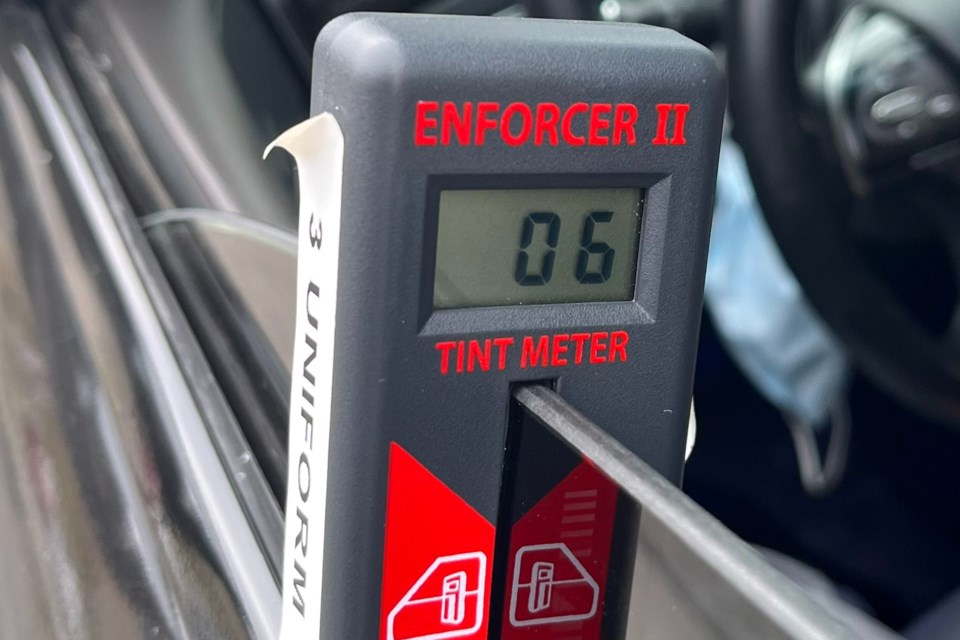Window tints are a fast and relatively inexpensive way to modify the look of a car that help with privacy and keeping the temperature down inside a vehicle, but they can be dangerous.
Darker tints make it difficult – or impossible – for drivers to make eye contact with one another, pedestrians, or cyclists. Legally, there is no official limit in Ontario to how dark the front windows can go, only that police officers must rely on their visual observations that the amount of tint obscures their view into the interior of the vehicle, or the driver's view out of the vehicle.
“The percentage found in the standard for vehicles 2017 and newer is a minimum of 70% luminous (light) transmittance or maximum of 30 per cent opacity,” Halton police said in an email. “Essentially the tinting cannot block more than 30 per cent of the light.”
Since January 2020, there have been 751 charges for colour coating obscuring the interior in Halton. Police can determine how dark a window is using a tint meter, though Halton police said officers are not required to use the tool to lay a charge under the highway traffic act.
In Burlington, drivers have several options for window tint services. The process only takes a few hours, and depending on the type of tint they want, can cost as little as $300 for the full package.
“In the back windows, you can pretty much go as dark as you want,” an employee from Tint Shield on Brant said. “The legal limit is 35 per cent, that being said I know a bunch of people have done 20 per cent without any issues.”
An employee at Elevated Film Solutions in Ancaster also said they wouldn’t go darker than 20 per cent tint, and a representative from Tint World on Fairview said to stay within regulations, they would stay at 35 per cent on the front windows.
Halton police confirmed that the back windows, including the rear windshield, can be as dark as the driver wants, going as dark as limo tint. Though the front windshield is not allowed to be tinted at all for vehicles made after January 1, 2017.
Vehicles made before 2017 may have some form of tint applied in certain instances, such as a darkened strip across the top four inches of the windshield.
“I haven’t seen a full tint, but you used to be able to buy an adhesive that you’d install on the interior of your windshield,” Scott Marshall, road safety blogger from thesafedriver.ca said. “Then you wouldn’t have to worry about the gap between your two sun visors.”
Marshall added that people used to install tints before air conditioning was a standard feature in cars to help keep the temperature down, but nowadays it’s primarily done for looks. As of 2018, entry level vehicles from Chevrolet, Fiat, Honda, Hyundai, Jeep, Kia, Mazda, Mitsubishi, Nissan, and Toyota still did not come with standard air conditioning.
Though for the most part, Marshall said tints are used for aesthetic purposes.
“You can’t make eye contact with someone who has tinted windows on the side,” Marshall said. “They can’t see you wave go ahead, they can’t even tell if you’re looking at them. This is extremely difficult for pedestrians and cyclists.”



